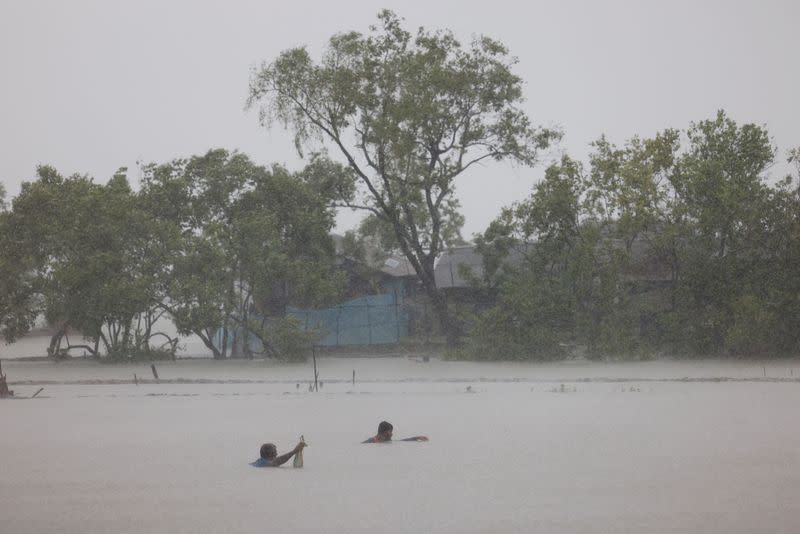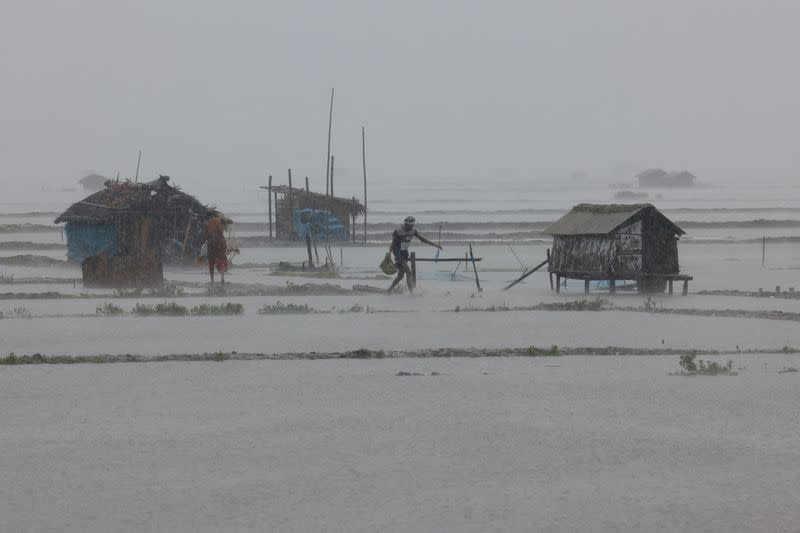Rains cause quarry collapse in remote Indian region, cyclone deaths reach 23
By Tora Agarwala and Ruma Paul
GUWAHATI, India (Reuters) -Torrential rains brought by cyclone Remal caused a stone quarry to collapse in India's northeastern state of Mizoram, killing 12 people and trapping seven, while 11 more died in landslides and other accidents elsewhere in the remote region, officials said.
Rescue workers on the outskirts of Mizoram's state capital of Aizawl used heavy-duty excavators to cut through stone slabs while battling heavy rain and loose soil at the site, said the state's chief minister Lalduhoma, who goes by one name.
"There is a continuous flow of soil and mud making matters more difficult," he told Reuters, adding that rescue operations would be hampered by the onset of night.
The powerful cyclone had weakened into a depression after devastating regional coastlines the previous day, when it killed at least 16 and cut power to millions in parts of eastern India and neighbouring Bangladesh.
"There have been incessant rains in the wake of cyclone Remal, which led to the quarry collapse," a state disaster management official in Mizoram told Reuters, speaking on condition of anonymity.
Authorities in India's northeastern states, some of which share a border with Bangladesh, have issued warnings telling people to stay at home and to take precautions.
Six more people were killed in landslides in the last 24 hours in Mizoram, which borders Bangladesh, while a falling tree killed three people in the state of Assam further to the north, officials said. Schools and colleges remained shut.
Two more deaths were reported in the states of Meghalaya and Nagaland, local media said.
Authorities in India's eastern state of West Bengal were working to restore electricity in the worst-affected areas, after Remal stripped power lines and uprooted trees.
Remal is the first of the frequent storms expected to pound the low-lying coasts of India and Bangladesh this year as climate change drives up sea surface temperatures.
Many parts of coastal Bangladesh have no electricity and telecoms links, officials said, but crews were working to restore power as soon as possible.
"Mass evacuations significantly reduced potential casualties, but the storm left a trail of destruction," said disaster management chief Mijanur Rahman, adding that damage cannot be fully estimated unless communications are restored.
(Reporting by Tora Agarwala in Guwahati, Ruma Paul in Dhaka and Subrata Nag Choudhury in Kolkata; Writing by Shilpa Jamkhandikar; Editing by Clarence Fernandez and Gareth Jones)






